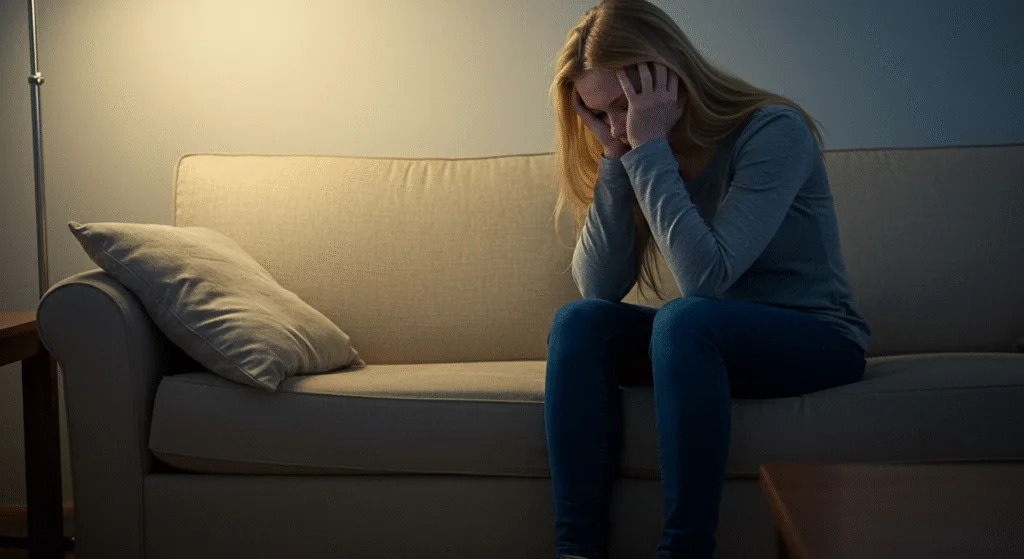Learn about depression, its symptoms, causes, treatment options, and how to cope. This comprehensive guide covers everything you need to know about depression for better understanding and support.
Causes, Symptoms and Treatment
Depression is a common but serious mental health condition that affects millions of people worldwide. It goes beyond feeling sad or down for a few days and can significantly impact daily life, emotions, and physical health.
When left untreated, depression can lead to severe complications, including thoughts of self-harm or suicide. However, it is important to understand that help is available, and recovery is possible.
What Is Depression?
Depression, also known as clinical depression or major depressive disorder, is a mood disorder characterized by persistent feelings of sadness, hopelessness, and a lack of interest in activities once enjoyed.
It is not simply a temporary state of mind; rather, it is a complex condition influenced by genetic, biological, environmental, and psychological factors. Unlike normal emotional fluctuations, depression lasts for weeks, months, or even years if untreated.

Types of Depression
Researchers have identified several types of depression, each with unique features and triggers:
- Major Depressive Disorder : Characterized by intense symptoms that interfere with daily functioning.
- Persistent Depressive Disorder (Dysthymia): A chronic form of depression lasting two years or more.
- Postpartum Depression : Occurs after childbirth and affects new mothers emotionally and physically.
- Seasonal Affective Disorder (SAD): Linked to changes in seasons, typically occurring during fall and winter.
- Bipolar Depression : Part of bipolar disorder, involving episodes of mania and depression.
- Psychotic depression : Includes severe depressive symptoms along with hallucinations or delusions.
Common Symptoms of Depression
The signs of depression can vary from person to person but commonly include:
- Persistent sadness or emptiness
- Loss of interest in hobbies and activities
- Fatigue or decreased energy
- Changes in appetite and weight
- Difficulty concentrating or making decisions
- Feelings of worthlessness or guilt
- Thoughts of death or suicide
These symptoms are often experienced most of the day, nearly every day, and may be accompanied by physical issues like headaches or digestive problems.

Causes and Risk Factors
Although the exact cause of depression remains incompletely understood, several factors can potentially contribute to its development:
- Genetics : A family history of depression increases the risk.
- Brain Chemistry : Imbalances in neurotransmitters such as serotonin and dopamine play a role.
- Life Events : Trauma, loss, abuse, or significant stress can trigger depression.
- Medical Conditions : Chronic illness, pain, or hormonal imbalances may contribute.
- Medications : Some drugs have depression as a side effect.
- Substance Abuse : Alcohol or drug use can worsen or mimic depressive symptoms.
Possibly due to hormonal changes and societal pressures, women are more likely than men to receive a diagnosis of depression.

Diagnosis of Depression
A licensed mental health professional typically makes the diagnosis through clinical interviews, questionnaires, and sometimes lab tests to rule out other conditions.
The DSM-5 (Diagnostic and Statistical Manual of Mental Disorders) outlines specific criteria for diagnosing depression, requiring at least five symptoms over a two-week period.
Treatment Options for Depression
Treatment for depression is highly individualized and often involves a combination of approaches:
1. Therapy
· Cognitive Behavioral Therapy (CBT): Helps individuals identify and change negative thought patterns.
· Interpersonal Therapy (IPT): Focuses on improving relationships and communication.
· Psychotherapy : Offers a safe space to explore emotions and develop coping strategies.
2. Medication
Doctors commonly prescribe antidepressants such as SSRIs (selective serotonin reuptake inhibitors), SNRIs (serotonin-norepinephrine reuptake inhibitors), and others. These medications are usually taken under medical supervision.
3. Lifestyle Changes
· Regular exercise has been shown to boost mood and reduce symptoms.
· A balanced diet rich in omega-3s, vitamins, and minerals supports brain health.
· Adequate sleep and stress management techniques like meditation or yoga can also help.
4. Support Systems
Family, friends, or support groups can provide emotional support and encouragement during recovery.
5. Alternative Therapies
Some individuals benefit from acupuncture, mindfulness practices, or light therapy (especially for SAD).
Coping Strategies for Living with Depression
Living with depression can be challenging, but there are effective ways to manage it:
- Set small, achievable goals each day.
- Keep a journal to track moods and progress.
- Stay connected with loved ones.
- Avoid isolation and seek help when needed.
- Practice self-compassion and patience during recovery.

When to Seek Help
If symptoms persist for more than two weeks or begin to interfere with work, relationships, or daily activities, it is important to reach out for professional help.
In cases where thoughts of self-harm or suicide arise, immediate assistance should be sought. Contacting a mental health hotline or visiting the nearest emergency room can save lives.
Breaking the Stigma Around Depression
Despite being a treatable condition, many individuals avoid seeking help due to stigma or fear of judgment. Education and open conversations can help reduce misconceptions and encourage those affected to get the support they need.
Conclusion
Depression is a widespread yet manageable condition that impacts both the mind and body. With proper diagnosis, treatment, and ongoing care, individuals can lead fulfilling lives.
Whether you’re experiencing symptoms yourself or supporting someone who is, remember that help is available, and healing is possible. Early intervention plays a critical role in recovery.
Read This Article: Mental health connection to criminal behavior
